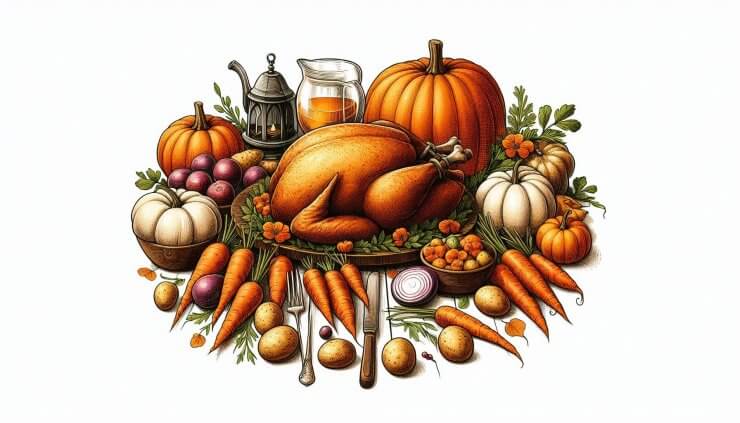Read by Michael Flamel

I’ve always had a special affection for Thanksgiving. It seems to me the gentlest, the kindest of our holidays. There’re no glaring red rockets or blowouts on beer. There’s not the commercialization of Christmas, when a blizzard of promotion buries the holiday’s original purpose. It hasn’t been gimmicked up with brash hats and colored eggs like Easter.
Thanksgiving remains true to the words in its name. Thanksgiving is, in essence, a tribute to gardening. True, the hunter’s booty gets top billing, but the accompaniments—corn, rice, squash, pumpkins—the provisions that will sustain the Pilgrims through the cold months ahead—these come from growers who, for months just o’er, cared for their crops.
Hence, Thanksgiving reminds us that whether we live in a Manhattan high-rise or Vancouver houseboat, it is plants on which we depend. Oh sure, today you can zip down to the local Safeway and pick up a fresh New Zealand apple or Mexican strawberry, foods that seem to have originated, plastic-wrapped, on a shelf. But we don’t eat them on Thanksgiving. We eat the foods people grow and store right here, provisions that declare their roots—and our ties to them. Foods that talk to us: The crops you grow and sustain, they say, are what grow and sustain you.
Thanksgiving also reminds us that as plants give to us, so should we give to each other, for it was the generosity of the original Americans to some uninvited newcomers that created that first November feast. Cultivate each other, the meal reminds us. Give each other the gift of your food, of yourselves.
What quiet, special lessons those are. With heads bowed and hands clasped, give thanks for fruits, friends, families. Then, like the plants and the gardeners who grew them, share. ❖


 Previous
Previous



????????????????????
sorry, I was using emojis and symbols of Thanksgiving: food and praying hands
Very well written, Mr. Stone! Thank you!